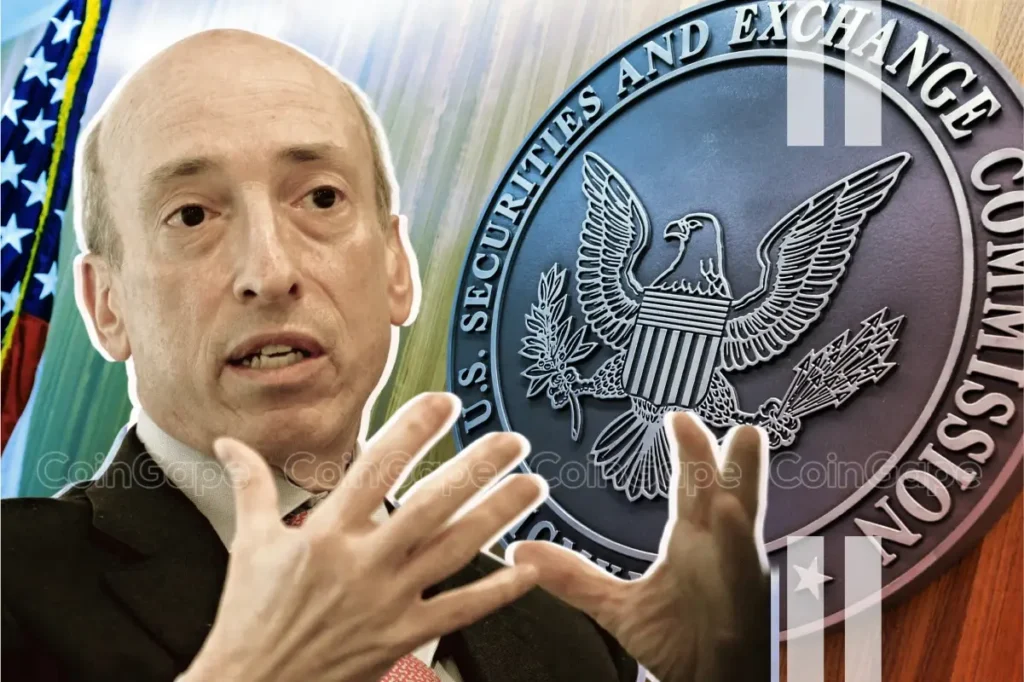Gary Gensler Defends SEC’s Crypto Enforcement Actions: A Deep Dive into Current Industry Tensions
Former U.S. SEC Chair Gary Gensler recently appeared on CNBC’s “Squawk Box” to share his perspective on the contentious crypto landscape. In an interview that reignited discussions around regulatory measures, Gensler emphasized his commitment to a regulation-by-enforcement approach that has garnered criticism from the crypto community. His stance has not only sparked outrage among crypto advocates but also raised concerns about the implications of his actions on innovation and market growth in the United States.
Gensler’s View on Enforcement Actions
During the interview, Gensler expressed pride in the SEC’s record of enforcement actions against major players in the crypto industry. He defended the agency’s strategies under his leadership, claiming that they were necessary for protecting investors. Under Gensler, the SEC accused notable firms like Binance, Coinbase, and Kraken of numerous regulatory violations, while ongoing litigation against Ripple also continues to shape the conversation. However, recent leadership changes have seen a shift, with new SEC Chair Paul Atkins reversing many of these decisions, further escalating tensions between regulatory bodies and the crypto community.
The Crypto Community’s Response
The reception to Gensler’s comments was predictably negative within the crypto community. Many industry leaders accused him of mishandling regulatory guidelines, arguing that he showed little initiative in fostering a clear framework for cryptocurrency assets. Critics pointed out that instead of concentrating on investor protection as he claimed, Gensler’s enforcement measures stifled innovation. The lack of transparent regulations has frustrated many, who believe this creates barriers rather than safeguards for investors seeking to enter the market.
Gensler on Crypto Fundamentals
A key highlight from Gensler’s remarks was his assertion that most cryptocurrencies—beyond Bitcoin—lack tangible fundamentals, labeling them as “highly speculative and very risky.” His statement contributed to speculation that he has emerged as a "Bitcoin maximalist," particularly in light of recent approvals for spot Bitcoin ETFs during his tenure. While he recognized Bitcoin’s unique position, Gensler’s dismissal of thousands of other tokens raised eyebrows, prompting criticism that he remains detached from the evolving landscape of digital assets.
Notable Critiques from Industry Leaders
In the aftermath of Gensler’s interview, prominent figures in the crypto space voiced their opinions. Tyler Winklevoss characterized Gensler’s approach as a disservice to the nation, while others like Luke Martin questioned Gensler’s role as SEC Chair, suggesting that his perspective more closely resembled that of a financial advisor opposed to innovation. The sentiments expressed demonstrate a broader dissatisfaction within the crypto community towards regulatory leaders who seem resistant to understanding the complexities and potential of the cryptocurrency market.
Steps Toward Regulation and Clarity
Despite the criticism aimed at Gensler, some industry leaders, including Coinbase CEO Brian Armstrong, expressed optimism about recent progress in Washington, D.C. Armstrong highlighted a bipartisan alignment towards establishing clearer regulations for the crypto market, framing it as a positive step for consumer protection. This optimism is crucial, especially in light of ongoing legal battles and discussions surrounding market structure, which could ultimately influence the future of digital assets in the United States.
Conclusion: The Path Forward
As the crypto community continues to navigate an increasingly complex regulatory environment, the contrasting views of Gensler and industry leaders underscore a critical juncture. While Gensler maintains that his enforcement actions are in the best interest of investors, many within the industry advocate for a more nuanced and supportive regulatory framework that fosters innovation while ensuring consumer safety. Moving forward, it is essential for regulators and industry stakeholders to engage in constructive dialogue that prioritizes clarity, transparency, and a rooted understanding of the evolving crypto landscape.


